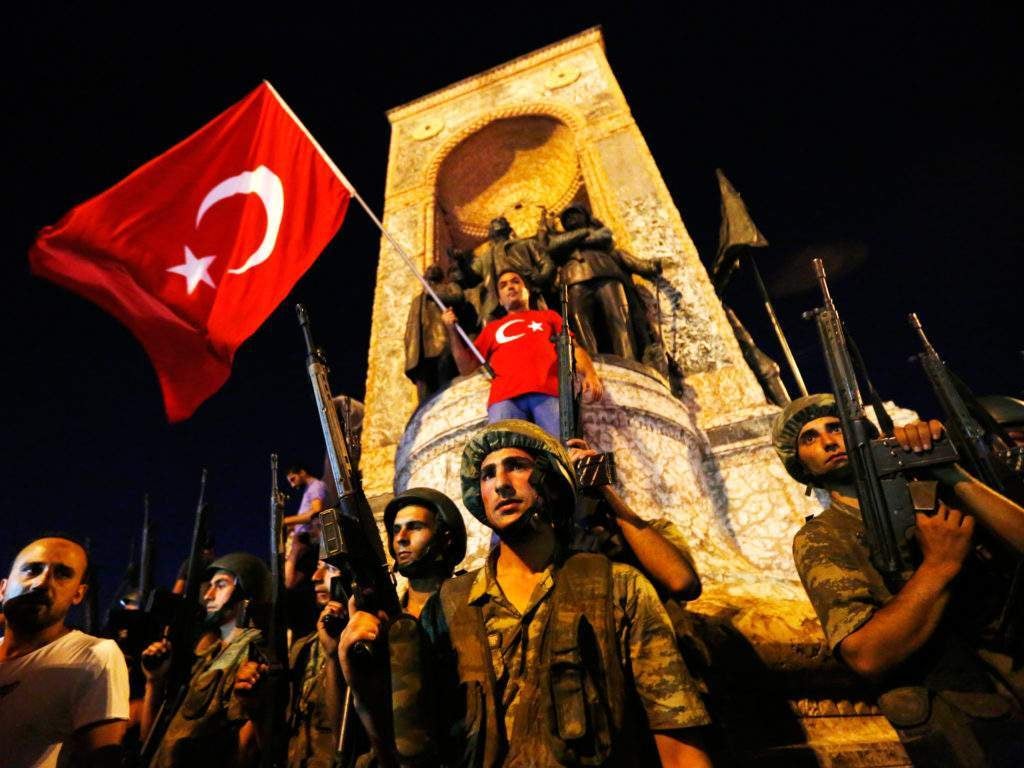
WealthInsight’s Oliver Williams looks at how the recent attempted coup in Turkey, and the ensuing backlash, are impacting the region’s private wealth.
A timely report from wealth consultancy WealthInsight has shown that Turkey now has an HNW community of 96,768 individuals. Not only is that the largest in the Middle East, but it’s about 17,500 more than its nearest rival, Israel. With a neighbour mired in civil war and borders awash with refugees, Turkey would seem like an island of prosperity in an otherwise turbulent region, especially considering the exposure of so many Middle Eastern economies to a fluctuating oil price.
So what of the 15th July coup attempt by factions of the Turkish military? With 58 per cent of Turkey’s HNW community resident in Istanbul, they cannot have failed to have noticed the tanks on the streets, riots by the coup’s opposers and the sporadic gunfire that resounded throughout the ancient city. The question here is how will it affect HNWs, their wallets, businesses and future fortunes?
Collectively, the wealth of Turkey’s HNWs stands at $58.1 billion. The majority of this is first generation wealth, earned through Istanbul and, to a lesser extent, Ankara’s thriving economies. The coup’s target, president Recep Tayyip Erdoğan, came to power in 2003. Roughly a third of Turkish HNWs (36,303 to be exact) have made their wealth under his rule and therefore have some support for his premiership.
If evidence were needed of this, the echelons of Turkey’s wealthy community have already spoken of their opposition to the coup. Aydin Doğan, who has a net worth estimated by WealthInsight at $1.28 billion, is the founder and controlling shareholder (alongside his daughter Arzuhan Doğan Yalçindağ) of Doğan Holding, one of the countries media groups. Speaking out against the coup, Doğan recently called it a ‘heinous attack on democracy’. Murat Ülker, chairman of the FMCG group Yildiz Holding and worth an estimated $4.2 billion, joined in the chorus, calling the coup a ‘treacherous attempt on our lives’.
Ingrained in their messages is an attempt to keep Turkey’s economy functioning as usual. The Abraaj Group, one of the region’s largest private equity funds with offices in Istanbul, has taken the lead by announcing plans to spend about $500 million on five Turkish companies, including obtaining a 10 per cent stake in Fibabanka AS, a private bank controlled by another Turkish billionaire, Hüsnü Özyeğin (worth $3.2 billion by WealthInsight estimates). Turkey’s restored relations with Israel (soured in 2010 by the latter’s attack on a Turkish aid convoy to Gaza) and Russia (which imposed economic sanction on Turkey after it shot down a Russian jet last year), may yet produce further business deals on the international stage.
However, that’s not to say this nouveau-riche community will support Erdoğan’s post-coup purge of media and military. Just as this article went to press, four executives of Turkish firms were arrested for backing the supposed coup organiser, Fethullah Gülen, the first such arrests within the business community. The executives were from two family run firms – Boydak Holding company and Sönmez Holding company – both diversified businesses and typical of the multi-sectored establishments that make up the source of wealth for 34 per cent of Turkish HNWs.
The knock-on effects of these arrests, and the others that are likely to follow, remains to be seen, but for many of Turkey’s wealthy, the outlook was gloomy even before the coup transfixed the country. Recent terrorist attacks have left the tourist industry on its knees, in turn affecting the luxury goods sector since many of its buyers originate from the Gulf and Europe. The number of HNWs in the country dropped 0.1 per cent between 2014 and 2015 after a near ten year growth streak.
Unfortunately for wealthy Turks, their country is in a geopolitical bind: a difficult political position only exacerbated by their physical position. Once its greatest asset, Turkey’s unique Euro-Asian position, buttressing battles and cornering conflict, is now its biggest headache. Keeping borders with an expansionist Russia, revived Iran and embattled Syria and Iraq is never going to be good for business. The attempted coup will not change this, while the ensuring wrath from the offices of Erdoğan will make things harder for anyone with practical interests, business or otherwise.
Turkish HNW Performance (US$ Billion and HNW Volume), 2011–2020

A version of this article originally appeared on Private Banker International.






